Some Customs officers were involved in an accident that left them severely injured.
It was gathered that the accident occured while the officers were chasing some suspected smugglers in the Northern part of Nigeria..
Here are photos from the scene;
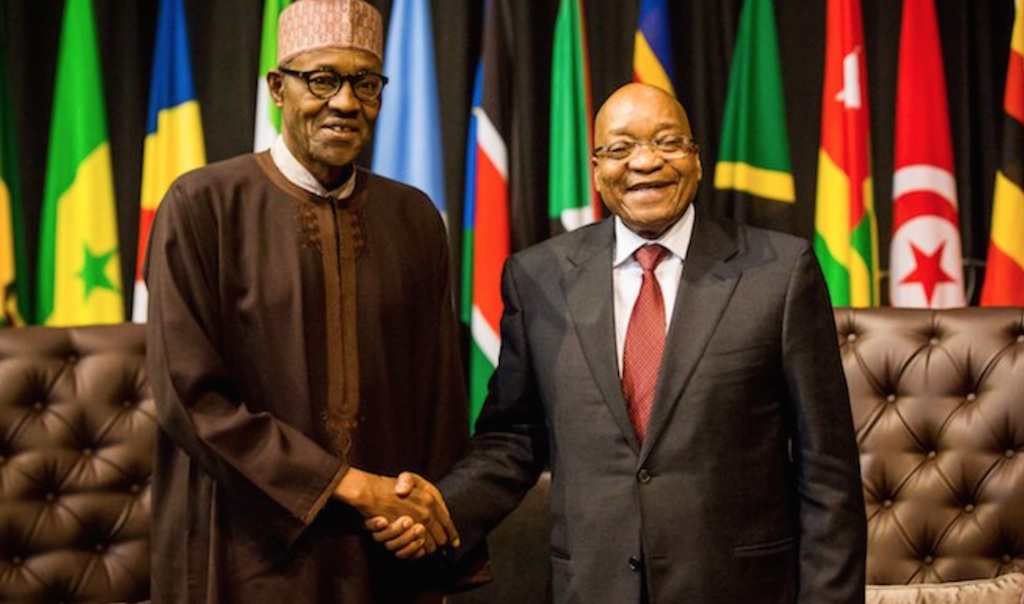
The Federal Government has said the recurring xenophobic attacks in South Africa can be ended using cultural diplomacy by both countries.
The Minister of Information and Culture, Alhaji Lai Mohammed, made the announcement on Friday in Abuja.
He was speaking when the South African High Commissioner to Nigeria, Mr Lulu Mnguni, paid him a courtesy visit.
Mohammed said that Nigeria and South Africa were two brotherly countries that had enjoyed long-standing relations, in spite of occasional disagreements.
He said the cultural diplomacy was in line with President Muhammadu Buhari’s recommendations for people-to-people relations between both countries in ending xenophobia.
The minister said that Buhari gave the recommendation when the South African President, Mr Jacob Zuma, paid a state visit to Nigeria.
He said that cultural diplomacy was an effective tool that would end xenophobia and strengthen the understanding between Nigerians and South Africans.
‘‘The options open to us in the area of cultural diplomacy are many but please, permit me to highlight a few of what we are planning to do in the months ahead.
‘‘The ministry of information and culture, working in collaboration with its relevant parastatal agencies is to embark on a series of activities in South Africa to strengthen the understanding between Nigerians and South Africans.
‘‘These activities include joint musical concerts, co-production in the area of films, visit of popular Nollywood actors and actresses to South Africa as part of a Nigerian delegation going on a confidence-building trip.
‘‘Exhibitions featuring Nigerian delicacies to be entitled “A Taste of Nigeria’’ and a town hall meeting for Nigerians resident in South Africa, with a view to encouraging dialogue on the way forward.’’
The minister said that the activities would kick-off in the weeks ahead and would not be a one-off event.
He said that while diplomats continued to strengthen bilateral relations between the two countries, the ministry would deploy and ensure the sustenance of cultural diplomacy to bring the people together.
Mohammed noted that if the relations between Nigeria and South Africa became more cordial, it would have a positive effect on the whole of Africa.
‘‘Over 120 South African companies, perhaps more than those of any other African country are doing business in Nigeria. Thousands of Nigerians regularly travel to South Africa for business and leisure.
‘‘Historically, Nigeria played a frontline role in helping to end the scourge of apartheid in South Africa.
‘‘We must spare no effort in strengthening this brotherly spirit between our two countries and cultural diplomacy will be a major tool in this effort.’’
Mnguni said earlier, that both countries shared trenches together for many years during the regime of apartheid which South Africa was able to defeat with the support of Nigeria.
The envoy thanked the Federal Government for the relentless fight side by side with his country during the apartheid era.
He said there was urgent need to deploy programmes that would educate the people on the time-tested relations between both countries.
‘‘We believe that using culture, music, poetry and many other forms of cultural relations will help to strengthen our cohesion.’’
Mnguni noted that Nigeria had potential in the field of culture which could be used to strengthen relations between the two countries.
He thanked the minister for championing the cultural diplomacy initiative to address racial intolerance.
NAN
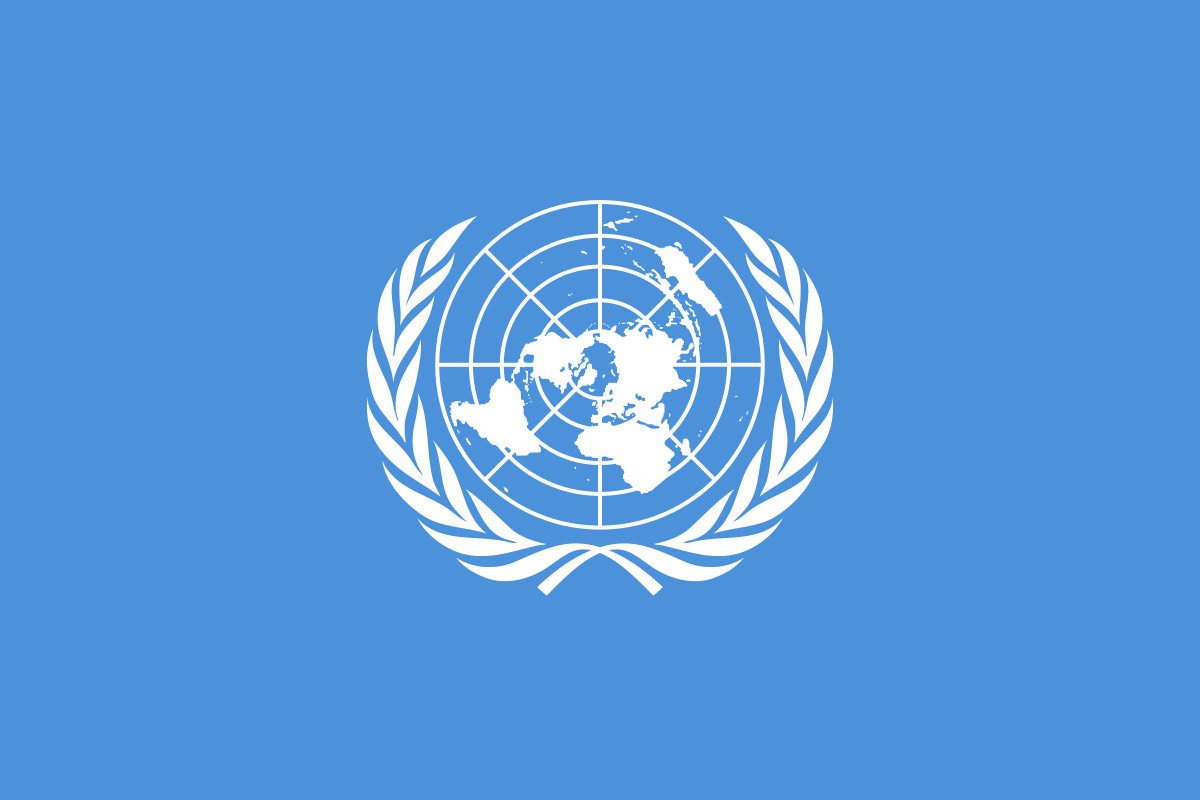
A Nigerian was yesterday appointed as the Acting President to preside over the 81st Plenary Meeting of UN General Assembly at the UN headquarters.
The Correspondent of the News Agency of Nigeria (NAN) reports that Nigeria’s Ambassador/Permanent Representative to the UN, Prof. Tijjani Bande, presided over the 193-member body.
NAN reports that Bande’s presidency at the Plenary Meeting happened just nine days after he presented his credentials to the UN Secretary-General António Guterres.
Nigeria was appointed one of the 21 Vice Presidents of the General Assembly on June 13, 2016 at the 71st session of the General Assembly.
NAN reports that Bande presided over the General Assembly following the absence of the President of the Assembly, Peter Thomson, who was on an official travel to the Central African Republic.
NAN also reports that the opportunity for Nigeria to preside over the 193-member body became possible following the assumption of duty of the country’s Permanent Representative.
Bande had told NAN that the goodwill Nigeria enjoyed since his assumption of duty last week was an indications that the international community had keenly awaited the appointment of Nigeria’s ambassador and Permanent Representative to the UN more than a year after the last ambassador completed her assignment and returned home.
“I intend to leverage on this and continue to leverage on Nigeria’s image in positive light,” Bande said.
NAN reports that the 81st Plenary Meeting of the General Assembly under Nigeria’s Acting Presidency, considered three reports.
The first report was ‘Appointment of Members of the Advisory Committee on Administrative and Budgetary Question: report of the Fifth Committee’, including the appointment of Mr Olivier Myard of France as a member of the committee from May 11, 2017 to Dec. 31, 2019.
The second report was ‘Appointment of Members of the Committee on Contributions: report of the Fifth Committee’, with the appointment of Ms Zhang Wei of China as a member beginning May 11 2017 and ending Dec. 31, 2017.
The third report considered was the ‘Organisation of Work, Adoption of the Agenda and Allocation of Items: Appointment of Members of the International Civil Service Commission: report of the Fifth Committee’, with the appointment of Mr Vladimir Storozhev of the Russian Federation as a member effective May 11, 2017 to Dec. 31, 2020.
Bande, subsequently, after the consideration of the three reports and recommendations, adjourned the Plenary Meeting.
NAN
The Federal Government has reiterated its commitment to ending terrorism and inequality across the globe.
This was revealed by Nigeria’s Permanent Representative to the United Nations, UN, Prof. Tijani Bande, on Wednesday.
Bande made the remarks at a dinner organized in his honour and his Deputy, Samson Itegboje, at the Nigeria House in New York, to formally welcome him into the diplomatic community.
The new envoy said that “Nigeria is committed to advance the cause of the United Nations to realise the purpose for which it was founded.
“Beyond this, I want to further pledge the readiness of the Government of Nigeria to work with others to address the urgent issues of terrorism and inequality in the global system”.
The dinner was well attended by members of the diplomatic corps.
There was a large representation from the Permanent Missions of many African countries, as well those of Canada and India, among others.
Members of the business community and Nigerians in the diaspora were also present to welcome the new envoy.
Speaking with newsmen, Bande expressed delight at the honour done to Nigeria by the diplomatic community, saying it has affirmed the goodwill the country enjoyed among the comity of nations.
“We are very glad that virtually all the Missions invited to the dinner attended; mostly the attendance was by the Heads of Missions.
“And even for those who couldn’t make it, they sent very senior officials who stayed with us and the interactions were extremely cordial.
“This is proof enough of our importance in the UN system.
“Which means we have to also strengthen our capacity to play our role in the system and there is no doubt, this is really the focus of the present administration.”
The Nigerian envoy said that he had hit the ground running since he assumed office last week adding, the Mission has proactively planned his schedules and things are going on well.
Bande assumed office on May 1 as Nigeria’s new envoy to the UN and presented his credentials to UN Secretary-General Antonio Guterres on May 3
NAN
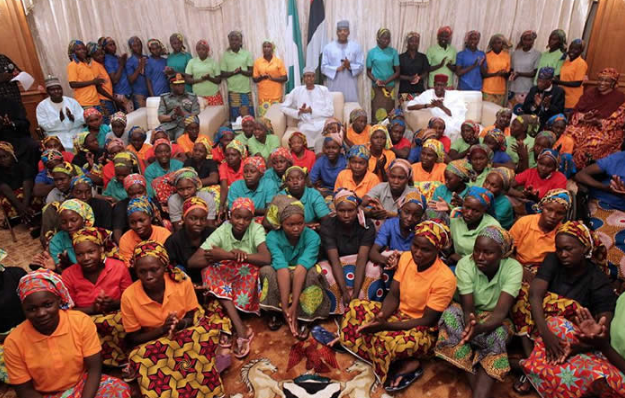
The spokesperson of Switzerland Foreign Ministry, Noemie Charton, said Switzerland took part in negotiations that secured the release of 82 girls kidnapped by Nigerian terror group Boko Haram
He said the country took part “at the request of Nigeria” and due to “humanitarian concerns.”
TheNewsGuru.com reports that a Boko Haram faction had released the girls, who had been held captive for three years, in exchange for prisoners.
Those freed were part of a group of more than 200 schoolgirls kidnapped from the Chibok village, in the restive Borno state, in April 2014.
Nigeria thanked Switzerland, the International Committee of the Red Cross as well as local and international NGOs for helping secure the release of the girls.
“Switzerland’s commitment is motivated by humanitarian concerns.
“Switzerland’s engagement in this operation was guided by the principles of strict neutrality and non-interference,” Charton said.
Charton added that Switzerland called on the release of the rest of the Chibok girls still being held captive by the group.
At least 21 Chibok girls were released last October in another deal brokered by Switzerland and the Red Cross. It is believed that 114 girls are still in Boko Haram custody.
“The process of negotiation with groups like Boko Haram is very complex and stressful and requires a varied number of actors working together and playing different, but key roles to realise the desired outcome,” security analyst and counter-terrorism expert David Otto told IBTimes UK.
“The Switzerland representative played an active role in organising negotiations from within Nigeria and outside Nigeria along with local key actors like Barrister Zannah Mustapha and [human rights activist and lawyer] Asiha Wakil who wield trust due to their pre-existing relationships with one or more factions,” he continued.
Details of the negotiations that resulted in the release of the girls have not been disclosed and little is known about the identity of the prisoners.
However, Otto – who said his company TGS Consulting was involved in negotiations – said the the prisoners are “influential Boko Haram commanders”.
“Their roles have never been officially established except that Boko Haram require[d] their release in exchange,” he said.
Ryan Cummings, director of political and security risk management consultancy, Signal Risk, told IBTimes UK: “It is difficult to speculate the impact that the release of the detained commanders would have on the operational capacity of the sect, given that we do not know the identities of the operatives released as a result of the hostage exchange.
NAN

The Nigerian Export Promotion Council, (NEPC) on Monday ranked the nation as global leader in the export of seven agricultural produce namely yams, cocoa yam, cassava, Melon, Kola nut Sorghum and Shea nut.
This was revealed in Lagos by Chief Executive Officer of the Council, Mr. Olusegun Awolowo at a business seminar on titled: ‘provision of a seamless logistics service as a panacea for economic growth ‘
He noted that the feat was achieved because of the Council’s decision to streamlining the procedures and documentation of export.
Awolowo said streamlining procedures and documentation to achieve optimality in cost was necessary for competitiveness in the export market.
He explained that there are 22 steps to exporting goods and lengthy and cumbersome procedures tend to add to cost of doing business.
He further hinted that opportunities available in non-oil export will remain a mirage if the issue of procedures and documentations remained cumbersome.
In his words: “While time is recorded in calendar days or average duration of the company interaction with various agencies, cost captures official fees paid for certificates and testing as both procedure and documentation are dependent on time and cost.
“Trade dynamics are evolving, competition for Foreign Direct Investments (FDIs) and easier ways of doing business are increasing ly impacting trade relations.”
Explaining further, Awolowo said that the NEPC has also stepped up efforts at encouraging private investors to build export warehouses to serve as one stop shop for non-oil exports adding that the availability of all relevant inspection and certification agencies under the same roof will also reduce cost.
In his opening remarks, convener of the conference Mr. Ali Shobande said that the move to establish an export terminal at the Lilipond in Apapa was to further reduce the cost of exporters in the course of doing their businesses.
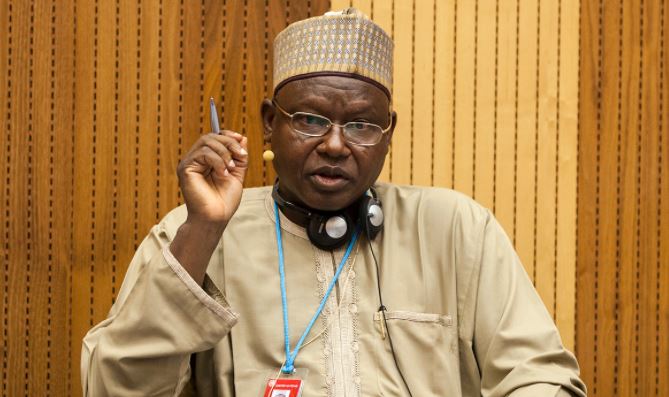
The Minister of State for Environment Ibrahim Jibril on Monday said Nigeria has been marginalized and ostracized by many rich nations in the European Union by suspending the importation of some its agricultural products.
Jibril also noted that the country has now become a dumping ground for inferior, substandard, expired and poisonous foods and feeds from countries across the globe.
The minister said this on Monday in Abuja at a workshop organised by National Biosafety Management Agency (NBMA) and Program for Biosafety Systems (PBS) to stimulate the collaboration of regulatory agencies.
He, however, noted that there might be some machinations by some affluent nations to keep Nigeria a food-dependent nation perpetually.
“Nigeria has been marginalised and ostracised by many rich nations in the European Union which suspended some of our agricultural products, citing high volume of dichlorvos pesticide as its reason.
“This is a reflection of our inability to adhere to global standards, which has come to hunt us at the international level.
“And I made bold to say that we — the regulatory Ministries, Departments and Agencies (MDAs) — all contributed our fair share to this deplorable state of affairs.
“Although we all have our specific mandates; the lack of collaboration in carrying out the mandates in the face of limited resources has hampered and reduced our efficiency and effectiveness,’’ he said.
Jibril said that now that modern biotechnology was becoming increasingly significant in addressing the emerging challenges of food security and renewable energy demand; stakeholders must work together for the good of the country.
“With its perceived and real unintended consequences, we the regulatory agencies must unite with a sense of purpose, vision, mission and determination to ensure that our nation do not become a dumping ground.
“And we must as well not run away from the benefits of the application of modern biotechnology and the use of genetically modified foods and feeds,’’ he said.
In his remarks, Dr Rufus Ebegba, the Director-General, NBMA, said that the agency had been advocating inter-agency collaboration to ensure that Nigeria would not be termed a dumping ground for unwholesome products anymore.
“Collaboration is key to success and we want to succeed in the use and application of Genetically Modified Organisms (GMOs) in the country.
“That is why we are collaborating with line agencies to keep the country safe and healthy,’’ he added.
Mr John Komen, the Coordinator of PBS in Africa, pledged his organisation’s support for efforts to adopt modern biotechnology applications in Nigeria.
“The workshop will discuss and analyse the responsibilities, use and legal mandates of relevant agencies as well as the impact of the commercial releases of genetically modified crops.
“It will also define the areas of collaboration and potential of these agencies,’’ he said.
Highlights of the event include the inauguration of the Biosafety Detection Laboratory at the headquarters of National Biosafety Management Agency in Abuja.
NAN
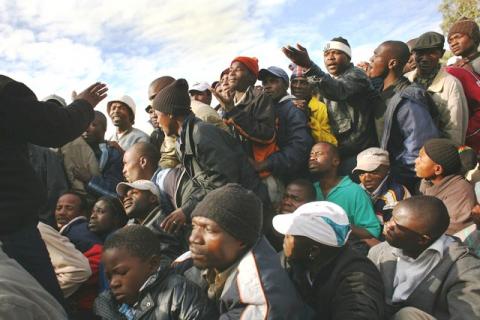
The Nigeria Immigration Service in Niger says it has repatriated 18 immigrants to the Republic of Niger.
Mrs Tamuno Oyedeji, Comptroller of Immigration Service in the state, disclosed this in an interview with newsmen in Minna on Saturday.
She said the service and Federal Ministry of Women Affairs and Social Development provided vehicles for the transportation of the illegal immigrants to Zangon Daura, a border post in Katsina State.
She also said that the immigrants were handed over to the Niger Republic Immigration officers at the border post.
Adedeji explained that the immigrants were repatriated because they did not have valid documents, adding that their presence constituted security threat to the residents of the state.
“They did not have legal valid documents to back their staying here, hence the need for us to send them back to their country,’’ she said.
The comptroller said that the command would continue to adopt proactive security measures to ensure the safety of all residents of the state.
She stated that more personnel had been deployed in Babana border post to prevent illegal immigrants from coming into the country from the Republic of Benin.
NAN
By Segun Odeyemi
The title of this piece is not a question. It is an attempt to push the boundaries by which we have messed things up so badly, with the hope that perhaps, they might give us an inkling into better ways to start the odious task of rebuilding before total disintegration. The current state of affairs, in Nigeria, makes the most ardent optimist wonder what the future holds for a country that could have been great, not only on the continent but one that could have been standing shoulder to shoulder among leading nations of the world. Humanity is flawed in many ways and there is a dark insidiousness to human nature. But with Nigeria, we take this darkness to another level that is bewildering. On daily basis, analysts, critics, scientists and everyday citizens continually dissect and proffer opinions about what is wrong with Nigeria, in some cases proffer also intelligent ways forward. I surmise that, amidst the cacophony of mutating idealisms, we know, albeit, obscurely, our problems and some possible diagnosis for treatment.
The much-touted movement for change since the new political dispensation came to power in Nigeria, first succumbed to a “go slow” and now to “stuck in traffic”. It is always worthwhile, if one cannot move forward, to have the common sense to look for a way out by reverse. Perhaps, the entire problem does not lie in our ‘fantastically corrupt’ politicians and citizens. It is within reason to note that when the man with a k-leg carries a luggage on his head, that luggage is bound to be crooked. The problem will not be the crooked luggage balanced on his head, the problem is below; the crooked legs. I believe what we are seeing today is a product of our evolution from colonial times into Independence. This by itself is not a new idea, but it is foundational to possible interventions for a re-addressing of our national malaise. As a nation, this ‘shema’, a country’s memory, is vital to its continuous existence and survival. Many critics argue that Nigeria and her denizens are quick to forget, therefore have grown a form of national amnesia. On this basis, it is not difficult for those who lay siege to the country’s welfare to continue to plunder without fear of consequences. But memory is not enough until it compels a people to react and stand up for what is fundamental to their collective common good.
In the beginning of the Nigeria story, an amalgam of various peoples and varied cultures were circumscribed into one territory by the British colonialists. Blame the British as much as you may, the truth remains that post-independence, these varied peoples and cultures, have had a chance to determine how to forge their own future. The seeming failure of the Nigeria experiment or the often-touted idea that the British handed over power to the docile northerners to maintain a foothold in the colony are all embedded in a dystopia fashioned by the hands of Nigeria’s political class from 1960 to date. The beginning of the debacle is embedded in the inability of the newly created nation state to evolve from a colonial entity into a true federalism. A review of Nigeria’s political evolution from attaining independence to date shows a bark, adrift, without a sail or at any given time, a capable captain to chart its course. What is wrong with Nigeria is simply the fact that it never came to birth. Whatever semblance of possible animation inherent in that propped up structure, ideas and persons have constantly connived to keep it permanently comatose. It therefore, was only independent of colonialists, it never achieved independence of selfhood. It has remained an amalgam of various ethnic groups, broadly broken down to the North, Middle Belt, East, South and West. This neo-independent entity, a creation of high British intelligence, was nothing more than a fabrication of polyvalent cultures whose foundations were laid on quick sand and tectonic shifting plates, homogenous territorially but multi ethnic confederation of competing groups.
The inability to birth a fledgling nation makes it impossible to build an identity. Once there is no personal- national identity, what is left is a caricature of what others regard as nation-state. If the nation is not established or exists ideologically only, its governance and politics are a joke. I question the presumption that the best kind of governance for Africa is democracy. In too many instances, participants and actors in the politics of Africa, Nigeria always in a leading role, have shown that democracy does not work for us. From a simple definitional perspective, the continent fails woefully because she is yet to provide a government of the people, by the people and for the people. Perhaps, ab-initio, nationalists across Africa seem to want to tweak the adoption of democracy; Nkrumah and Kenyatta’s Pan Africanism, Nwalimu Nyirere’s Ujamma, Leopold Senghor’s negritude, Awolowo and his idea of social-democratic welfarism. There is, therefore, an urgent need for a critical re-assessment of a system that serves and works for emerging African countries. Too many years have been wasted in the wastelands of unoriginality. Our forebears had their own political systems in place before anyone showed up on our shores. Perhaps, we go back and study their political and governing legacies, then creatively merge it, if necessary, to modern systems of governance; if it suits and works for us.
The prevailing endemic corruption, nepotism, wasting of lives, insurgencies, abuse of public office, trust and public funds goes directly back to an ontological problem; there was never a nation or national identity. The geographical entity created by the British and named Nigeria is a farce. The nationalists may have hoped that things will work out, so far, it has been the cohabitation of unwilling bed fellows. I dream of a united Nigeria because of our potentials to be great and be a bright light among world leaders. For this not to remain a dream, we must reset the clock. Start from the very beginning, and recreate the ideal Nigeria. It is crucial that we get to work starting from an epistemic stage into actualizing the new birth of a new Nigeria.
Rev. Fr. John Segun Odeyemi, Pittsburgh, Penssylvania
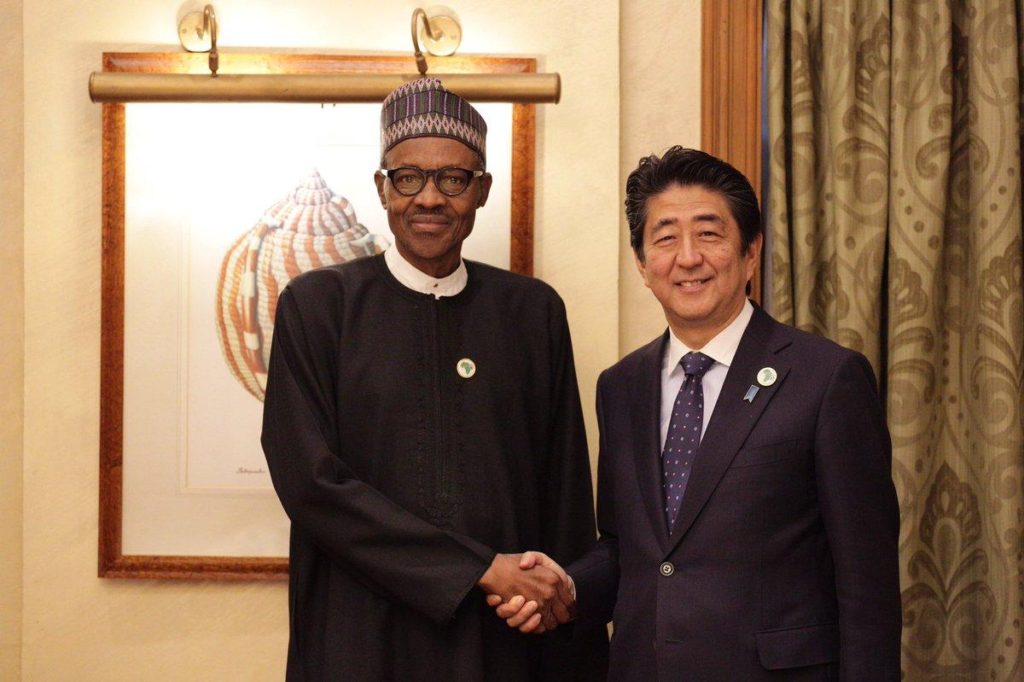
The Japanese Government has promised to fulfill its $30 billion Public and Private investment pledge made in August 2016 during the sixth Tokyo International Conference on African Development (TICAD) in Nairobi, Kenya, which was attended by President Muhammadu Buhari.
The assurance was given on Thursday by the Japanese Trade and Investment Mission to Nigeria led by the country’s Vice-Minister for Foreign Affairs, Mr. Shunsuke Takei.
The Minister of Finance, Kemi Adeosun however urged the Mission to key into Nigeria’s easy business environment and set up manufacturing plants, instead of shipping-in finished products.
According to her, President Muhammadu Buhari’s government was open and ready to continue to do business with the rest of the world.
She added that the federal government was vigorously working to improve the country’s business environment through investment in transportation infrastructure and the ease of doing business.
She said: “We urge you to set up manufacturing plants, instead of shipping-in finished products into the country.
“We will assist you to do well. Many companies came into Nigeria and are doing very well and there is nothing to stop Japanese firms from doing very well.
“We have introduced specific reforms by removing lots of impediments.
“Fiscal incentives to facilitate your coming into Nigeria to invest and drive your businesses, are being put in place.”
Earlier in his remarks, the leader of the Mission, the Japanese Vice-Minister for Foreign Affairs, Mr. Shunsuke Takei, said that they were on a Mission in Nigeria as part of the efforts by the Japanese Government to actualize the US$30 billion Public and Private investment pledge made in August 2016 during the sixth Tokyo International Conference on African Development (TICAD) in Nairobi, Kenya, which was attended by President Muhammadu Buhari.
He said that given the size of the Nigerian population and market as well as its economic recovery and potential for growth, Japanese investors were desirous of investing in Nigeria, while noting challenges in the areas of security, legal and power environments.
He praised the Economic Recovery and Growth Plan of the Federal Government and expressed optimism that the foreign exchange situation would improve further.